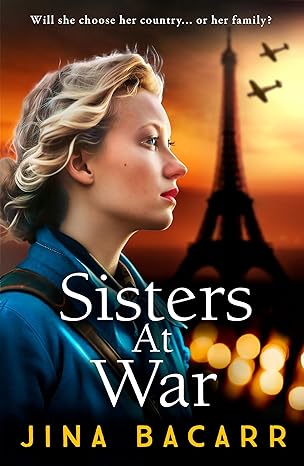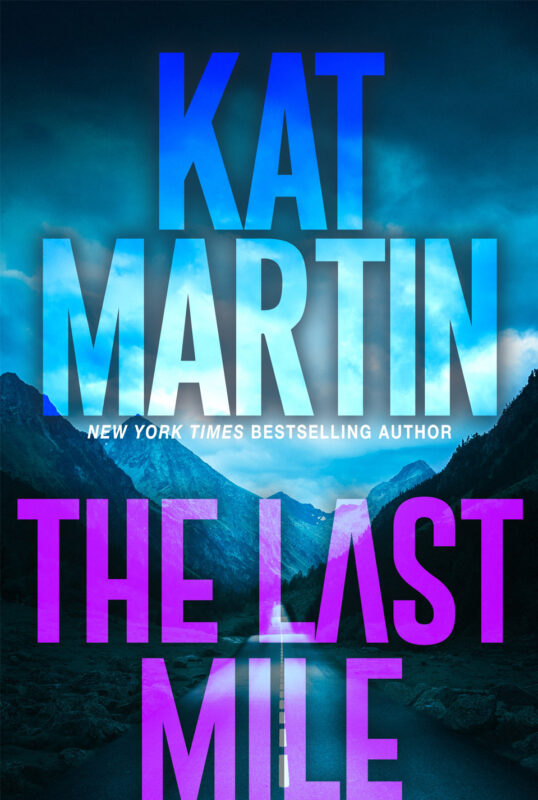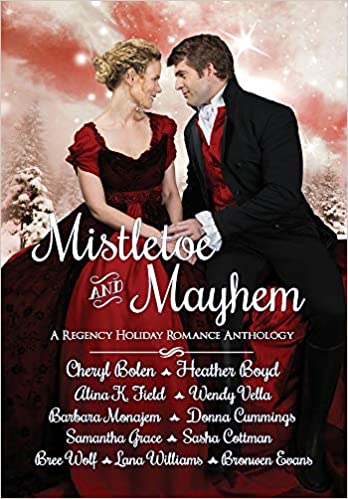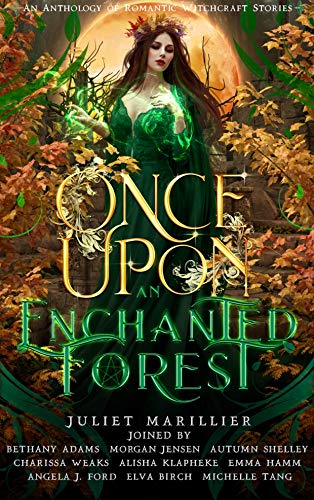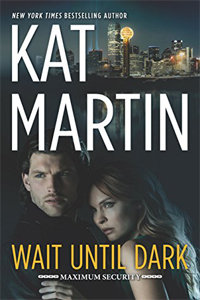Hobby Vs. Career
January 24, 2006 by A Slice of Orange in category Archives tagged as Motivational
By Dana Diamond
What do Tupperware consultants, Olympic hopefuls, entrepreneurs and unpublished writers all have in common?
They all sacrifice inordinate amounts of time, energy and (often) money on careers that may or may not reap any financial benefits…even though they know the odds of are stacked against them.
My question isn’t why they are insane enough to do this, but rather, why is it that three out of the four are considered careers, but the fourth is often mistaken for a hobby?
Now I know there are writers who don’t care to be published. They are known as hobbyists. And I know there are entrepreneurs out there that are dabbling just for the fun of it; also hobbyists. And therein lies the key; “for the fun of itâ€.
But if an unpublished writer is consistently writing and working toward their goal of a career as a published author, why would someone take the time to try and convince them it is a hobby?
Just because we love what we do and can’t imagine doing anything else (even if it pays bubkis) doesn’t mean it isn’t work.
Of course, I recently debated this double standard, which is why it’s on my mind. I bring it up to you because I know I can’t be the only writer who’s had this conversation.
Hopefully, revealing the double standard for what it is will help other writers and their loved ones gain perspective.
Or maybe the dictionary, my all-time favorite book, can settle it:
hob·by
n. pl. hob·bies
An activity or interest pursued outside one’s regular occupation and engaged in
primarily for pleasure.
ca·reer
1)
a) A chosen pursuit; a profession or occupation.b) The general course or progression of one’s working life or one’s professional
achievements: an officer with a distinguished career; a teacher in the midst of
a long career.2) A path or course, as of the sun
through the heavens.3) Speed: “My hasting days fly on with full careerâ€
(John Milton).adj.
1) Doing what one does as a permanent occupation or lifework: career diplomats; a
career criminal.
God, I love a good lexicon.
So, I ask you:
Do you consider the pursuit of a career as a published writer a hobby or a career?
What is with the double standard?
And most importantly, why would anyone go out of their way to inflict their “hobbyist†opinions on a poor unsuspecting, unassuming, under-the-weather, unpublished writer?
Dana Diamond
http://www.danadiamond.blogspot.com/
http://www.thewritersvibe.typepad.com/
A MORE BEAUTIFUL PICTURE
January 19, 2006 by A Slice of Orange in category Archives tagged as Motivational
Some of you may remember from a previous post of mine that recently an editor, who will always have my heartfelt thanks, had sent me a revision letter for my historical manuscript, TO REIGN EDEN. Although the changes were hardly complicated, it took me awhile to figure out how to take apart my story like pieces of a jigsaw puzzle and put it back together to form a different, but definitely more beautiful, picture.
Now I can step back and study the new picture with all the pieces intact. And you know what? I’m even more in love with the story and the characters than ever before.
I scrutinized each piece, each scene, each character, and forced myself to focus on how to make it all behave differently, how to make it all ring truer, how to put together a more complete picture. And you know what I found? My characters and their motivations are stronger, each scene serves its purpose in expressing the need and wants of the characters, and sparks fly between my hero and heroine.
It wasn’t easy for me to do that. No way. Writing is never “easy†for me, but that’s probably because I expect my stories and characters to convey so much to the reader. I know what I want to experience when I pick up a book and those standards apply to my writing, as well, which can very well lead to a massive headache, but I wouldn’t have it any other way. Oh, and those of you brilliant published authors out there who have no problem creating beautiful stories so quickly—I bow to your genius and talent!
And even though those standards of mine are high, there are always ways to raise the level of the story. Such was the case when the editor read my story. Yes, I had definitely written the story to my best ability before I’d sent the manuscript to the publishing house, but with a little guidance and a few suggestions, I managed to learn more about how to write a compelling novel. Boy, I hope I’ll never stop learning.
No, I’m not telling you that the story is perfect and will never be revised again (don’t I wish!). Rather, I’m saying that I am open to becoming a better writer each time I sit down to the computer and visit my stories.
Okay, now it’s time for me to polish my proposal again…
Happy writing!
www.michelecwiertny.blogspot.com
Reflections on Rejections
January 16, 2006 by A Slice of Orange in category Archives tagged as Motivational
By Sandy Brown
We’ve all received at least one. Many of us can line our offices with them. Rejections! I’m one of those who have gotten more of the dreaded things than I want to admit. Usually I feel badly for a few minutes and, then, suck it up and move forward. Recently, however, I received a rejection that threw me for a loop. I mean this “pity party†would not end!
Second Chances is so close to my heart. I poured my blood into this manuscript, spent more time than I should have perfecting it, and pitched it at National Conference. When I was told that I had pitched a good outline and would I please submit a written synopsis and the first three chapters, I fairly floated out of the room. This was it! So it was with supreme confidence that I put the requested material lovingly in an envelope and mailed it off to Harlequin Superromance. I just knew it was exactly what they wanted. Surely they would beg me to let them purchase it!
Three months later the thick manila envelope showed up in my mailbox. My heart sank. I felt sick to my stomach. I knew what the letter lurking inside would say.
I have talked to Lara Hyde, Editorial Assistant for Superromance, on the phone. She is a lovely young lady who obviously has a kind heart. I think the rejection letter she sent to me went beyond any obligation she may have felt to let me down easy. She described the writing in the beginning of Second Chances as “solid.†She stated that the reader is “given a good sense of how my heroine is feeling in the situation and the reasons for her anger.†Then, she told me what was wrong with the plot and why it didn’t work for Superromance.
To say I was devastated is putting it mildly. I called my critique partner, Tina Ralph, to cry on her shoulder. Being the positive person she is she immediately took steps to pull me out of my “funk.†A real pity party would do the trick! Here she came to my front door with a Crème Cheese Pastry. I made hot chocolate, and we settled in for an afternoon of commiseration. Soon, we had moved beyond the realm of rejection letters and were laughing over events taking place in our lives. Our pity party had turned into a party. We ended the day with a plan for how I should proceed with my book.
Reflecting back on that rejection, I’ve come to realize why it affected me so dramatically. The recent death of my mother was part of the problem, leaving me vulnerable to depression. Blind confidence that I had written the very best book I could left no room for rejection. After all, if they didn’t want my best, where did that leave me? Where could I go from here? And finally, when you write—no matter how loosely—on an event that has happened to a loved one, you have a vested interest in the success of the story. The rejection discounts the event!
I’m back at work now at my computer, pounding out another heartfelt romance. Putting my blood, sweat and tears into my new characters. I just know this will be the best…
My advice is to write the best book you can, but don’t let yourself believe it’s the best you can ever do. We all have room for improvement each day. Keep writing, keep submitting, and don’t lose your belief in yourself and your abilities. Above all, don’t let a rejection letter take away your confidence.
And finally, if you do get broadsided by a rejection, I hope you have someone like Tina to help you pick yourself up. Thank you, Lara Hyde, for taking the time to write such a lengthy rejection letter, which helps me to see where my story went wrong. Thank you, Tina, for being there for me.
What I Learned From A Leprechaun…
January 10, 2006 by A Slice of Orange in category Archives tagged as A Writer's Life, Motivational
Last year I dreamt that I was trying to become a leprechaun. I was determined to fit into the green suit coat with a plaid vest, black Pilgrim shoes and knickers. No matter how much I took in the seams and contorted myself to jam my arms into the coat sleeves, the costume was either too tight or too loose. It was only when I woke up that I gave up this primal need to be a leprechaun.
But I couldn’t go back to sleep because I had no idea why I wanted to be a leprechaun. I would’ve had to have grown a beard. When I drifted back to sleep, I realized the dream was telling me that I had been spending way too much time and energy trying to be something I could never be. But first, let me give you some background.
Last year on February 1st, I walked into Barnes & Noble and saw my book on the shelves for the first time. I was living every author’s dream. Cosmopolitan Magazine picked Hot Tamara to be its Red Hot Read for April 2005, I had the honor of speaking to OCC RWA, I was on TV and in the newspaper and I was flown out to Phoenix for a booksigning! But as a writer, I was caught in a nightmare.
In December of 2004, I decided to branch out and try writing a drama about two sisters who never knew the other existed, and a young adult about a teenaged curandera. Even though my fingers bled at the keyboards from writers block, I fought the good fight and finished those suckers. I should’ve seen the signs that these stories would not end so happily ever after. The young adult was rejected by almost every house in New York, even though the New York Daily News touted Hot Tamara as a Hot, Hotter and Hottest Read. Oh, did my ego feel the sting! As for the drama, it was so bad, it will never see the light of the day. Or so I thought.
My agent told me I had some good stuff in that drama, all of which were the comedic relief scenes. The young adult had some great stuff, too. Yep, you guessed it, the comedy bits with my heroine’s pug, Vinyl. Shortly after my leprechaun dream, I came up with a new idea about two best friends – a stay-at-home earth mother and a wild single girl – who switch bodies and have to live each others lives until they can figure out how to go back. When I sat down to write the proposal, I was laughing so hard that I had to type with one hand and wipe away the tears with the other. My agent sold it within twenty-four hours.
Remember that drama I was telling you about? Those sisters, Sela and Dori became the wild Orihuela girls … the kind of girls boys dream about, and good Catholic mothers feared. In their story which I called, “Till Death Do Us Part,” they make a pact at their hoity toity brother’s wedding to see who can land the blue-eyed hottie at the bar. I rallied up some of my buddies – Berta Platas, Sofia Quintero and Lynda Sandoval – to create a fun, sexy anthology of stories about sisters. We sold it by auction within a week.
For 2006, I resolved to stick to my roots as a romantic comedy writer. I’m not a dramatic writer and perhaps I’m not a young adult writer (although that heroine still lingers in the back of my mind so who knows where she’ll end up). But comedy and a hot sex scene are what I do best and by gum, I’m proud! So I urge you to sit back for a moment and think about what you do best as a writer. Okay if you can’t come up with anything, ask your critique partners or look at comments on your work to see where the reader remarked, “good job!” Is it plot, setting, historicals that take place between 1843 and 1845, alpha males … whatever it is, resolve to do it and do it well. Don’t waste time trying to be what you aren’t, or trying to be your favorite author. Trust me, I’ve tried and it isn’t pretty!
Author of HOT TAMARA
Please visit http://www.marycastillo.com/ or
Part 2: Things Are Not Fine
January 6, 2006 by A Slice of Orange in category Archives tagged as Craft
A Slice of Orange Blog is pleased to bring you part-two of Susan Squires Blog! For part-one, please scroll down to the preceding blog.
I had a great time during the holidays. I connected with friends and relatives, and I got pretty much just what I wanted for Christmas. Which started me thinking. That would not be a great situation for a novel. We want life to be nice to us, but we can’t be nice to our characters.
Because I’ve been knee-deep in contest entries recently as judging season rolls around, I wanted to talk just a bit about conflict. You may remember recently that I advised taking time to think about what each character wants out of a scene. It’s also important in constructing both your book and your scene to have the reader clear on why that character can’t have what they want.
Yep! Your main character can’t get what they want most, or even whatever they want out of a particular scene, for most of the book. If the scene looks like they do get what they want, there has to be an unforeseen outcome or some kind of a mistake which puts that character right back in conflict. Maybe they got what they thought they wanted, but the reader knows better. If they don’t get what they want, take that opportunity to make not getting it have an even worse consequence. Let’s look at an example. Sally wants to have John ask her to take a ride in his new car. He does. But they get in an accident and are stranded miles from town. Or he does, but the reader knows that he’s secretly a rat who will take advantage of her, and she shouldn’t be going anywhere alone with him. Make it worse—he’s a serial killer! Or he’s a great guy but he doesn’t ask her and worse yet, he asks her arch-rival Ann, instead. And they run over her bicycle which is her only transportation to school. And they laugh at her! You get the idea.
So the question you are asking yourself in each scene is “Does my character get what she wants?†The answer is either, “ Yes, but……†or, “No, and furthermore….†It’s hardly ever just “yes.†Until the last scene! Okay, I only put in “hardly ever†because I’m not a believer in rules. But I do believe that if the main character gets exactly what she wants without her having reservations or without the reader feeling that it was a big mistake, you are letting the story tension seriously lapse. If you do that at the end of the chapter, the reader may close the book and never pick it up again. You leave the reader feeling, “Nice, but so what?†instead of being on pins and needles to see what happens next.
Now let’s talk a little bit about the beginning of a book (remember, I’ve been reading a lot of contest entries, and they’re always about the beginning.) Here, setting the conflict has to come as early as you can manage it. I’ve seen lots of entries where the first pages set the stage, and things are just fine. Uh, oh. Setting the stage can work, but the character has got to have some problem. Okay, she may not have been transported to another universe where she will have to save earth from certain destruction by aliens yet, but she’s got issues! They can be internal conflicts, relationship problems, character flaws, something…. but “things are just fine†doesn’t capture a reader’s interest. Start things off in the middle of “not fine,†and go from there.
Going back to the example I gave of character motivation, what the hero and heroine want is, ideally, in conflict. I used The Companion as an example in my last blog, where Ian and Beth both want to return to the life they once knew. He can’t because he’s a vampire and a normal life is denied him, and her father died, forcing her to abandon her life as an itinerant archeologist. Okay, that means each has conflict between what they want and what they can have. But when we find he wants to return to England where she has always been wildly unhappy and she wants to return to North Africa where he suffered as a slave and has vowed never to return, their goals are in conflict with each other as well. Of course, we know that they are more the same than different. It’s what draws them together. And we suspect that during the course of the story, what they want will change, but the idea is to start them off with things, “not being fine.â€
So, let’s consciously separate ourselves from our characters. I hope the holidays were everything you wanted and expected, and I hope in 2006 you make your characters suffer until the last possible moment!
Affiliate Links
A Slice of Orange is an affiliate with some of the booksellers listed on this website, including Barnes & Nobel, Books A Million, iBooks, Kobo, and Smashwords. This means A Slice of Orange may earn a small advertising fee from sales made through the links used on this website. There are reminders of these affiliate links on the pages for individual books.
Search A Slice of Orange
Find a Column
Archives
Featured Books
THE LAST MILE
A novel of taut suspense and danger from New York Times bestselling author Kat Martin.
More info →MISTLETOE & MAYHEM: A REGENCY HOLIDAY ROMANCE ANTHOLOGY
There’s no Christmas like a Regency Christmas spent under mistletoe! New York Times Bestselling author Cheryl Bolen and friends invite you to discover true love in eleven deliciously steamy romances in this all-new holiday collection.
More info →ONCE UPON AN ENCHANTED FOREST
The autumnal equinox is a celestial event that brings together harvest and celebration, symbolizes magick and transformation, and welcomes a balance of light and darkness. It’s a time when those who honor the changing seasons rest and reflect.
Or reap what they’ve sown.
More info →Newsletter
Contributing Authors
Search A Slice of Orange
Find a Column
Archives
Authors in the Bookstore
- A. E. Decker
- A. J. Scudiere
- A.J. Sidransky
- Abby Collette
- Alanna Lucus
- Albert Marrin
- Alice Duncan
- Alina K. Field
- Alison Green Myers
- Andi Lawrencovna
- Andrew C Raiford
- Angela Pryce
- Aviva Vaughn
- Barbara Ankrum
- Bethlehem Writers Group, LLC
- Carol L. Wright
- Celeste Barclay
- Christina Alexandra
- Christopher D. Ochs
- Claire Davon
- Claire Naden
- Courtnee Turner Hoyle
- Courtney Annicchiarico
- D. Lieber
- Daniel V. Meier Jr.
- Debra Dixon
- Debra H. Goldstein
- Debra Holland
- Dee Ann Palmer
- Denise M. Colby
- Diane Benefiel
- Diane Sismour
- Dianna Sinovic
- DT Krippene
- E.B. Dawson
- Emilie Dallaire
- Emily Brightwell
- Emily PW Murphy
- Fae Rowen
- Faith L. Justice
- Frances Amati
- Geralyn Corcillo
- Glynnis Campbell
- Greg Jolley
- H. O. Charles
- Jaclyn Roché
- Jacqueline Diamond
- Janet Lynn and Will Zeilinger
- Jeff Baird
- Jenna Barwin
- Jenne Kern
- Jennifer D. Bokal
- Jennifer Lyon
- Jerome W. McFadden
- Jill Piscitello
- Jina Bacarr
- Jo A. Hiestand
- Jodi Bogert
- Jolina Petersheim
- Jonathan Maberry
- Joy Allyson
- Judy Duarte
- Justin Murphy
- Justine Davis
- Kat Martin
- Kidd Wadsworth
- Kitty Bucholtz
- Kristy Tate
- Larry Deibert
- Larry Hamilton
- Laura Drake
- Laurie Stevens
- Leslie Knowles
- Li-Ying Lundquist
- Linda Carroll-Bradd
- Linda Lappin
- Linda McLaughlin
- Linda O. Johnston
- Lisa Preston
- Lolo Paige
- Loran Holt
- Lyssa Kay Adams
- Madeline Ash
- Margarita Engle
- Marguerite Quantaine
- Marianne H. Donley
- Mary Castillo
- Maureen Klovers
- Megan Haskell
- Melanie Waterbury
- Melisa Rivero
- Melissa Chambers
- Melodie Winawer
- Meriam Wilhelm
- Mikel J. Wilson
- Mindy Neff
- Monica McCabe
- Nancy Brashear
- Neetu Malik
- Nikki Prince
- Once Upon Anthologies
- Paula Gail Benson
- Penny Reid
- Peter Barbour
- Priscilla Oliveras
- R. H. Kohno
- Rachel Hailey
- Ralph Hieb
- Ramcy Diek
- Ransom Stephens
- Rebecca Forster
- Renae Wrich
- Roxy Matthews
- Ryder Hunte Clancy
- Sally Paradysz
- Sheila Colón-Bagley
- Simone de Muñoz
- Sophie Barnes
- Susan Lynn Meyer
- Susan Squires
- T. D. Fox
- Tara C. Allred
- Tara Lain
- Tari Lynn Jewett
- Terri Osburn
- Tracy Reed
- Vera Jane Cook
- Vicki Crum
- Writing Something Romantic
Affiliate Links
A Slice of Orange is an affiliate with some of the booksellers listed on this website, including Barnes & Nobel, Books A Million, iBooks, Kobo, and Smashwords. This means A Slice of Orange may earn a small advertising fee from sales made through the links used on this website. There are reminders of these affiliate links on the pages for individual books.

